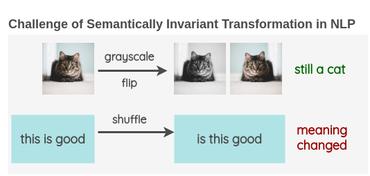Search Results for author: Chengyu Huang
Found 9 papers, 4 papers with code
Multi-party Response Generation with Relation Disentanglement
no code implementations • 16 Mar 2024 • Tianhao Dai, Chengyu Huang, Lizi Liao
Existing neural response generation models have achieved impressive improvements for two-party conversations, which assume that utterances are sequentially organized.
KnowPhish: Large Language Models Meet Multimodal Knowledge Graphs for Enhancing Reference-Based Phishing Detection
no code implementations • 4 Mar 2024 • Yuexin Li, Chengyu Huang, Shumin Deng, Mei Lin Lock, Tri Cao, Nay Oo, Bryan Hooi, Hoon Wei Lim
Phishing attacks have inflicted substantial losses on individuals and businesses alike, necessitating the development of robust and efficient automated phishing detection approaches.
Training Language Models to Generate Text with Citations via Fine-grained Rewards
no code implementations • 6 Feb 2024 • Chengyu Huang, Zeqiu Wu, Yushi Hu, Wenya Wang
While recent Large Language Models (LLMs) have proven useful in answering user queries, they are prone to hallucination, and their responses often lack credibility due to missing references to reliable sources.
Inherent limitations of LLMs regarding spatial information
1 code implementation • 5 Dec 2023 • He Yan, Xinyao Hu, Xiangpeng Wan, Chengyu Huang, Kai Zou, Shiqi Xu
Despite the significant advancements in natural language processing capabilities demonstrated by large language models such as ChatGPT, their proficiency in comprehending and processing spatial information, especially within the domains of 2D and 3D route planning, remains notably underdeveloped.
Conversation Disentanglement with Bi-Level Contrastive Learning
no code implementations • 27 Oct 2022 • Chengyu Huang, Zheng Zhang, Hao Fei, Lizi Liao
Conversation disentanglement aims to group utterances into detached sessions, which is a fundamental task in processing multi-party conversations.
Few-Shot Text Classification with Triplet Networks, Data Augmentation, and Curriculum Learning
1 code implementation • NAACL 2021 • Jason Wei, Chengyu Huang, Soroush Vosoughi, Yu Cheng, Shiqi Xu
Few-shot text classification is a fundamental NLP task in which a model aims to classify text into a large number of categories, given only a few training examples per category.
Text Augmentation in a Multi-Task View
no code implementations • EACL 2021 • Jason Wei, Chengyu Huang, Shiqi Xu, Soroush Vosoughi
Traditional data augmentation aims to increase the coverage of the input distribution by generating augmented examples that strongly resemble original samples in an online fashion where augmented examples dominate training.
What Are People Asking About COVID-19? A Question Classification Dataset
2 code implementations • ACL 2020 • Jerry Wei, Chengyu Huang, Soroush Vosoughi, Jason Wei
We present COVID-Q, a set of 1, 690 questions about COVID-19 from 13 sources, which we annotate into 15 question categories and 207 question clusters.
AutoShrink: A Topology-aware NAS for Discovering Efficient Neural Architecture
1 code implementation • 21 Nov 2019 • Tunhou Zhang, Hsin-Pai Cheng, Zhenwen Li, Feng Yan, Chengyu Huang, Hai Li, Yiran Chen
Specifically, both ShrinkCNN and ShrinkRNN are crafted within 1. 5 GPU hours, which is 7. 2x and 6. 7x faster than the crafting time of SOTA CNN and RNN models, respectively.









